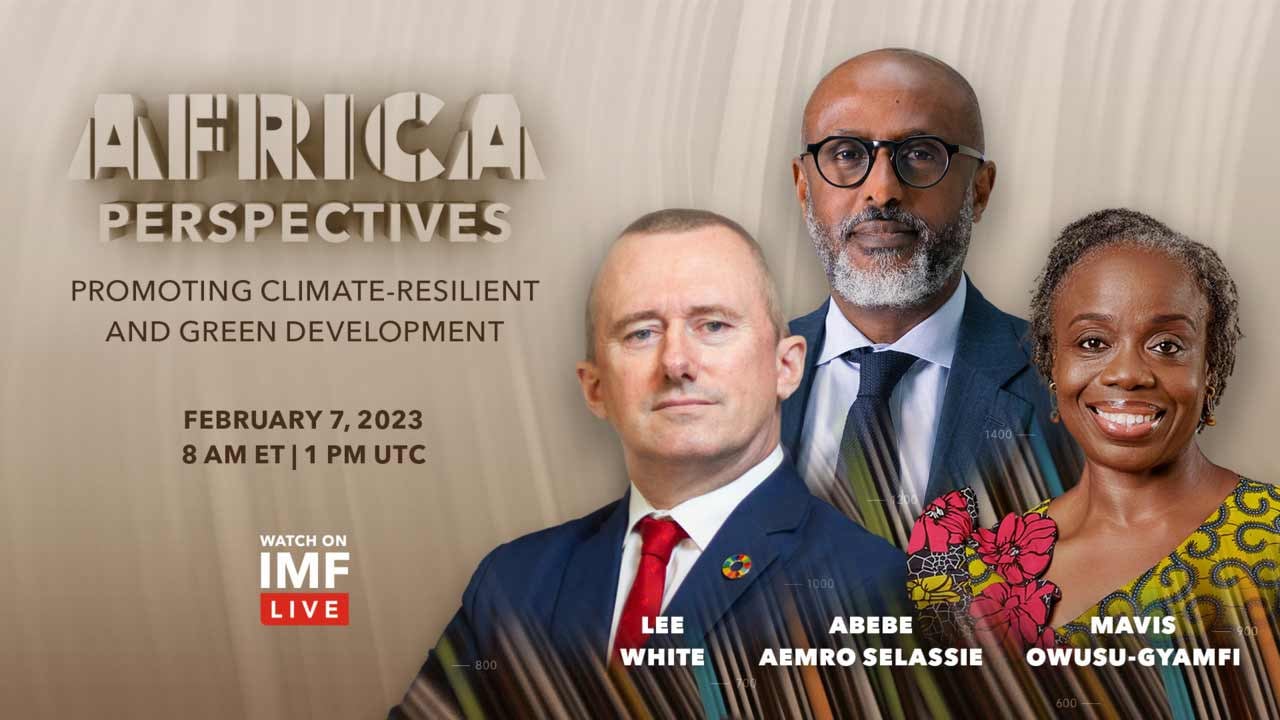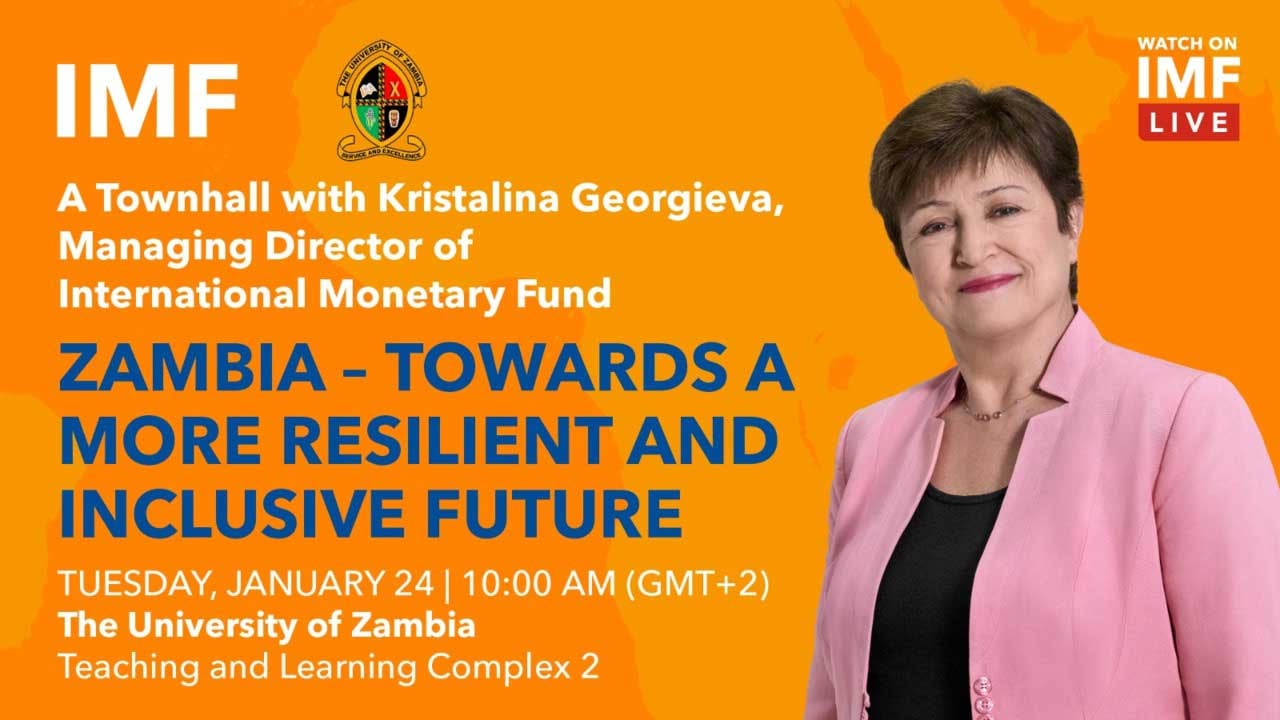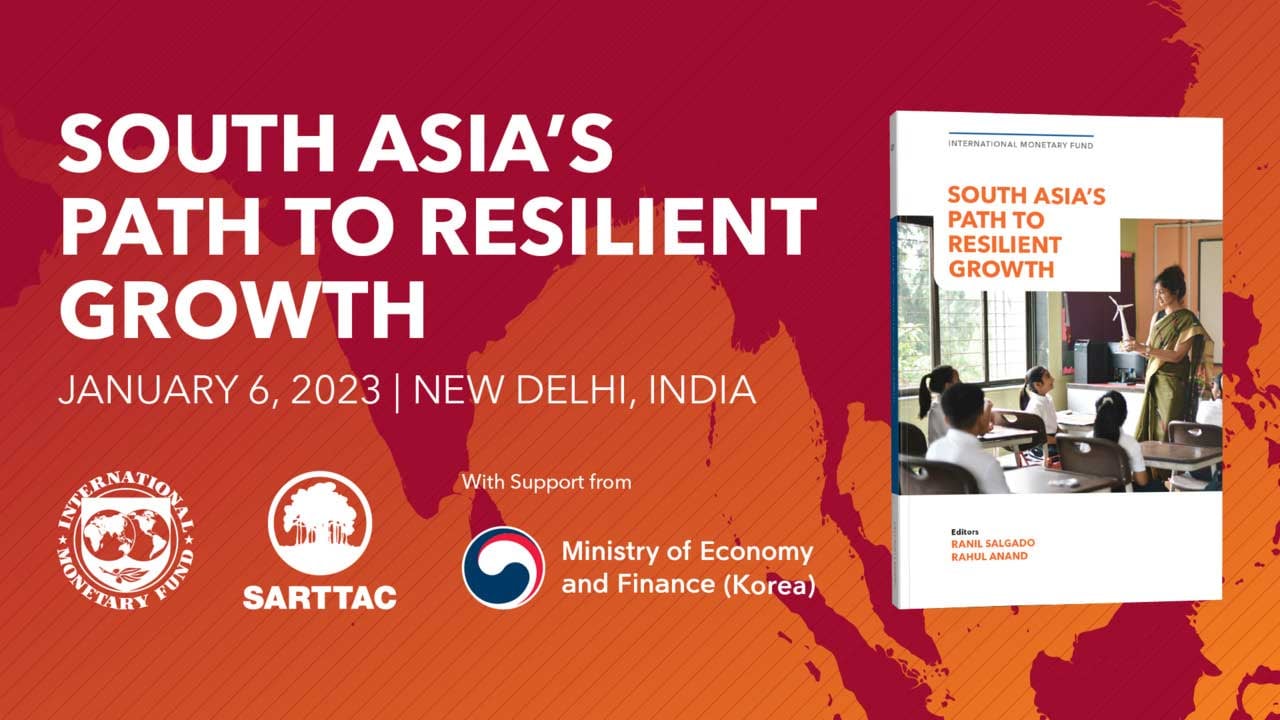Low-Income Countries

What has the IMF done to help low-income countries during the coronavirus pandemic?
The IMF has acted with unprecedented speed and scale to support low-income countries during the pandemic. The Fund provided financial support to 53 of 69 eligible low-income countries in 2020 and in the first half of 2021, with about US$14 billion disbursed as zero percent interest rate loans from the Poverty Reduction and Growth Trust.
Most of this support was through the Fund’s emergency financing instruments—the Rapid Credit Facility (RCF) and Rapid Financing Instrument (RFI)—which provide immediate, one-time disbursements to countries facing urgent balance of payments needs. The Fund was able to respond to a record number of requests for financial assistance through a series of temporary access limit increases to the RCF and RFI, and temporary increases in the Poverty Reduction and Growth Trust (PRGT) overall access limits.
IMF Executive Board Concludes the 2025 Article IV Consultation, Seventh Review under the Extended Credit Facility Arrangement, and Third Review under the Resilience and Sustainability Facility Arrangement with Cabo Verde
The IMF Executive Board completed the 2025 Article IV consultation, the seventh Extended Credit Facility (ECF) arrangement review, and third Resilience and Sustainability Facility (RSF) arrangement review.
IMF Management Approves the Third Review of the Staff Monitored Program with Equatorial Guinea
Management of the International Monetary Fund (IMF) approved the completion of the Third Review of the non-financing Staff Monitored Program (SMP) with Equatorial Guinea on December 16, 2025
IMF Executive Board Concludes 2025 Article IV Consultation with Malta
Malta’s robust economic performance has continued despite global uncertainties, maintaining growth rates that exceed the EU average, inflation levels near the ECB target, and a sustainable public debt.
Statement by IMF Deputy Managing Director Kenji Okumura at the Conclusion of His Visit to Burkina Faso
Mr. Kenji Okamura, Deputy Managing Director of the International Monetary Fund (IMF), issued the following statement today in Ouagadougou at the end of his visit to Burkina Faso:
IMF Reaches Staff-Level Agreement with Zimbabwe on a New Staff-Monitored Program
The IMF and Zimbabwe have reached a staff-level agreement on economic policies and reforms to be monitored under a 10-month Staff-Monitored Program (SMP), aimed at consolidating recent stabilization gains and strengthening macroeconomic management.
Boosting Trade and Economic Integration Across Europe and Africa
North Africa has a significant opportunity—an opportunity to deepen its cooperation, trade and integration with sub-Saharan Africa and Europe, and to offer greater growth and prosperity for its people.
Global Economy Shakes Off Tariff Shock Amid Tech-Driven Boom
But risks are rising, including from the concentration of tech investment and the negative effects of trade disruptions, which may build over time
New Skills and AI Are Reshaping the Future of Work
Policy choices will determine whether workers and firms are adequately prepared for the AI revolution
Top 10 Blogs of 2025
Debt, Stablecoins, AI, and Global Economy’s New Era Drew Blog Readers
Top Five IMF Blog Charts of 2025
Chart of the Week visuals illustrate major developments during a year of uncertainty and resilience
How Stablecoins Can Improve Payments and Global Finance
New technology can foster innovation and financial inclusion, or cause fragmentation and turbulence in many countries
Better Economic Measurement Is About Wiser Use, Not Just More Data
Statistics are a means, not an end, that should serve the public by helping us see the world more clearly and make better decisions
CD Guidance Note
This CD Guidance Note provides a one-stop source of information and reference materials on Fund CD-related policies, practices, and procedures. In line with the Management Implementation Plan (MIP) on the Independent Evaluation Office’s (IEO) 2022 Evaluation of CD, this Guidance Note supersedes the 2019 IMF Policies and Practices on Capacity Development and serves to operationalize the recommendations of the 2024 CDSR. It also integrates relevant earlier guidance to staff related to CD delivery and management.
Data Provision to the Fund for Surveillance Purposes - Operational Guidance Note
This note provides guidance to country teams on the application of Fund policies and procedures related to data provision to the Fund for surveillance purposes. It provides staff with clear procedures and practical tools for the assessment of data adequacy and guidance on the Fund’s collaborative framework to identify and address data shortcomings, hampering surveillance and support members’ data production and provision capacity. The note operationalizes recent Board reviews of the policies on data provision to the Fund and data adequacy that strengthen the Fund’s ability to conduct robust and evenhanded surveillance by ensuring that data provision keeps pace with evolving analytical and policy needs.
The 2025 Review of The Short-Term Liquidity Line
The Short-term Liquidity Line (SLL), introduced in 2020, was designed as a revolving liquidity backstop for countries with very strong economic fundamentals and institutional policy frameworks. It aims to address short-term, moderate balance of payments needs arising from capital flow volatility, helping to prevent emerging liquidity pressures from escalating into broader macroeconomic or financial instability. However, uptake has been limited, with only one arrangement for Chile in 2022, which was canceled shortly thereafter in favor of a Flexible Credit Line (FCL).
The Chair’s Summing Up Independent Evaluation Office—IMF Advice on Fiscal Policy Executive Board Meeting December 4, 2025
The Executive Board discussed the Independent Evaluation Office’s review of IMF fiscal policy advice from 2008 to 2023. Directors welcomed the evaluation and noted the Fund’s progress in adapting its guidance to changing global conditions. The discussion highlighted the evolution from a narrow focus on debt sustainability toward a more integrated approach that balances fiscal sustainability, output stabilization, and long-term growth. Directors acknowledged improvements in analytical tools, including debt sustainability frameworks and fiscal risk assessments, while emphasizing the need for clearer articulation of fiscal stance and better integration of long-term spending priorities. The Board reaffirmed its commitment to transparency and consistency in providing candid, country-specific advice to help members navigate fiscal challenges.
Statement by the Managing Director on the Independent Evaluation Office Report on IMF Advice on Fiscal Policy Executive Board Meeting December 4, 2025
The Managing Director welcomes the Independent Evaluation Office’s assessment of IMF fiscal policy advice over the past 15 years. The evaluation highlights the Fund’s evolution from a narrow focus on debt sustainability to a more balanced framework that integrates output stabilization, fiscal sustainability, and long-term growth objectives.
Gulf Cooperation Council (GCC)— Enhancing Resilience to Global Shocks: Economic Prospects and Policy Challenges for the GCC Countries
Despite the challenging external environment, the GCC economies have been resilient. Non-hydrocarbon activity has remained robust amid strong domestic demand supported by the reform momentum, limited spillovers from regional, as well as the modest direct impact of higher U.S. tariffs given the exemption of energy products and limited trade ties with the U.S. While external balances narrowed amid oil production cuts and robust imports, the external positions remain overall strong. The economic outlook remains favorable but risks are tilted to the downside amidst elevated global uncertainty. Economic activity will be supported by the unwinding of oil production cuts, the expansion of natural gas production, and strong reform and project implementation facilitated by ample policy buffers. External buffers would remain comfortable despite narrower current account balances driven by higher imports. The near-term risks to the outlook are tilted to the downside, as oil prices could decline and financial conditions tighten amid high uncertainty. Over the medium term, ongoing global structural shifts pose two-sided risks for the GCC economies.
Banking on Nonbanks
We study how banking groups adjust corporate credit supply in response to tighter macroprudential policies. Using granular data on syndicated corporate loans, we show that banking groups reallocate lending from bank subsidiaries toward affiliated nonbank financial institutions (NBFIs) following regulatory tightening. Relative to bank subsidiaries within the same group, NBFI subsidiaries expand lending, and their credit supply also increases in absolute terms. We estimate that by ‘banking on’ their nonbanks, banking groups offset, on average, more than half of the contraction in bank lending induced by macroprudential tightening. Our findings highlight an important intra-group reallocation channel through which banking groups can partially offset regulatory constraints and result in greater bank–nonbank interconnectedness.
Distributional Impacts of Inflation Accounting for Behavioral Effects and Real Assets
This paper analyzes the redistributive effects of inflation across 18 European economies from 2021:Q3 to 2022:Q2, using unique micro-datasets for this country sample. We estimate inflation’s impact on household welfare through the consumption basket, income, and wealth channels. Our main contribution is incorporating real assets into the wealth channel and accounting for behavioral responses to inflation in both the income and wealth channels. These factors significantly alter inflation’s distributional effects compared to previous literature. The inflation shock is estimated to have caused an average welfare loss equivalent to 18.5 percent of annual household income across our sample, with households in the poorest income quintiles suffering the largest losses. Cross-country differences also widen when real assets are incorporated, with a few economies even showing welfare gains for some or all quintiles because house prices rose faster than inflation.
Understanding and Forecasting Inflation in Timor-Leste
This paper presents a comprehensive analysis of inflation in Timor-Leste—a post-conflict, low-income economy and small developing state that is fully dollarized. We find that Timorese inflation was high until about mid-2010 and was strongly influenced by swings in global food prices given its high share of food in the CPI basket and heavy reliance on food imports. But inflation has been relatively low and stable in the past decade relative to peers—a period that also broadly coincided with moderate global food prices. We develop an empirical model for Timorese inflation that distills the role of these underlying drivers, and which can be deployed for forecasting inflation.
Beyond Binary: A Policy-Intensity Measure of Capital Flow Management
rmation from the IMF’s Annual Report on Exchange Arrangements and Exchange Restrictions (AREAER), the index is constructed by estimating the level of openness annually and updating it daily by incorporating changes in capital flow management measures (CFMs). Therefore, this index goes beyond the traditional indexes that rely on binary labels that only distinguish between full capital openness and any control. Within the range of [0, 1], the FinOpen index quantifies granular policy intensity and allows comparisons across countries (with higher values indicate greater capital openness). In addition, the dataset extends back to 1960 for 42 emerging and developing countries, and the methodology can be applied to construct long-term series for other countries.
Nowcasting Economic Growth with Machine Learning and Satellite Data
The absence of reliable data on fundamental economic indicators (e.g. real GDP), combined with structural shifts in the economy, can severely constrain the ability to conduct accurate macroeconomic analysis and forecasting. This paper explores alternatives to address data limitations by integrating machine learning and satellite data to estimate real GDP. Specifically, it finds that incorporating satellite-based nightlight data into a random forest model significantly improves the accuracy of quarterly GDP growth estimates compared with models relying solely on traditional indicators. This empirical application contributes to the emerging nowcasting field to enhance economic forecasting in economies with significant data gaps.
Motivating Capital Controls: Evidence from New Measures of Capital Flow Restrictions
Countries implement and liberalize capital controls opportunistically. To show this point, this paper introduces two novel indices—the Financial Account Restrictiveness Index (FARI) and the AREAER Change Index (ACI)—to measure and track capital flow restrictions across 190 countries quarterly from 1999 to 2022. FARI quantifies the restrictiveness of capital accounts, while ACI captures policy changes over time. These indices offer a comprehensive, objective, and high-frequency toolset to analyze capital account policies and their evolution over the past two decades. Using the two indices, the paper highlights global liberalization trends, regional differences, and the cyclical use of capital controls in response to macroeconomic conditions and crises.60
Promoting Climate-Resilient and Green Development in Africa | Africa Perspectives
A conversation on how sub-Saharan Africa can promote climate-resilient and green development. African Department director Abebe Aemro Selassie hosts the premiere episode of Africa Perspectives.
Zambia: Towards a More Resilient and Inclusive Future
A discussion with University of Zambia students on how Zambia is making progress in its reform efforts to restore sustainability, invest in youth, combat corruption, and attract investment and the role of the IMF.
Strengthening Institutions for Sustainable Growth in the Post-COVID World
The conference provides an opportunity to discuss how South Asia can build on its development success in the aftermath of the COVID-19 pandemic and geopolitical tensions to achieve its potential.
The Resilience and Sustainability Trust - A Dialogue with Countries
A discussion on how the Resilience and Sustainability Trust fits wider climate objectives at the country and global level.
Regional Economic Outlook for the Middle East and North Africa, October 2022
Jihad Azour, Director of the Middle East and Central Asia Department, presents the IMF’s latest economic outlook and growth projections for the MENA region
Living on the Edge: IMF Outlook for sub-Saharan Africa Nairobi Launch
A presentation and discussion of the October 2022 Regional Economic Outlook for Sub-Saharan Africa.

Developing Economies Seminars
FCDO/IMF Project

















